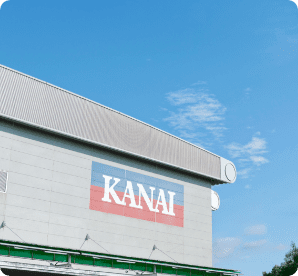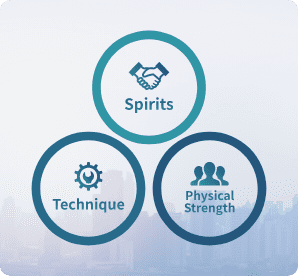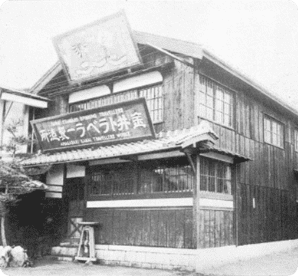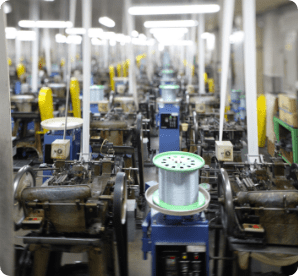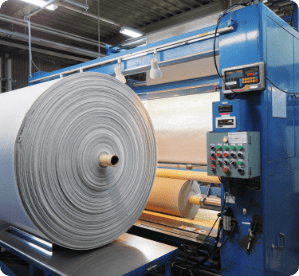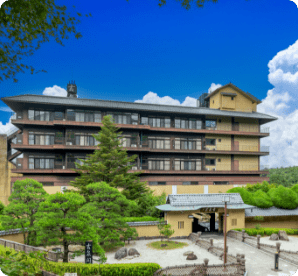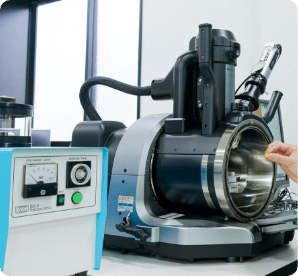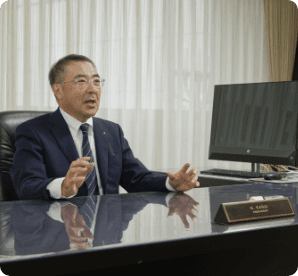Interview with President
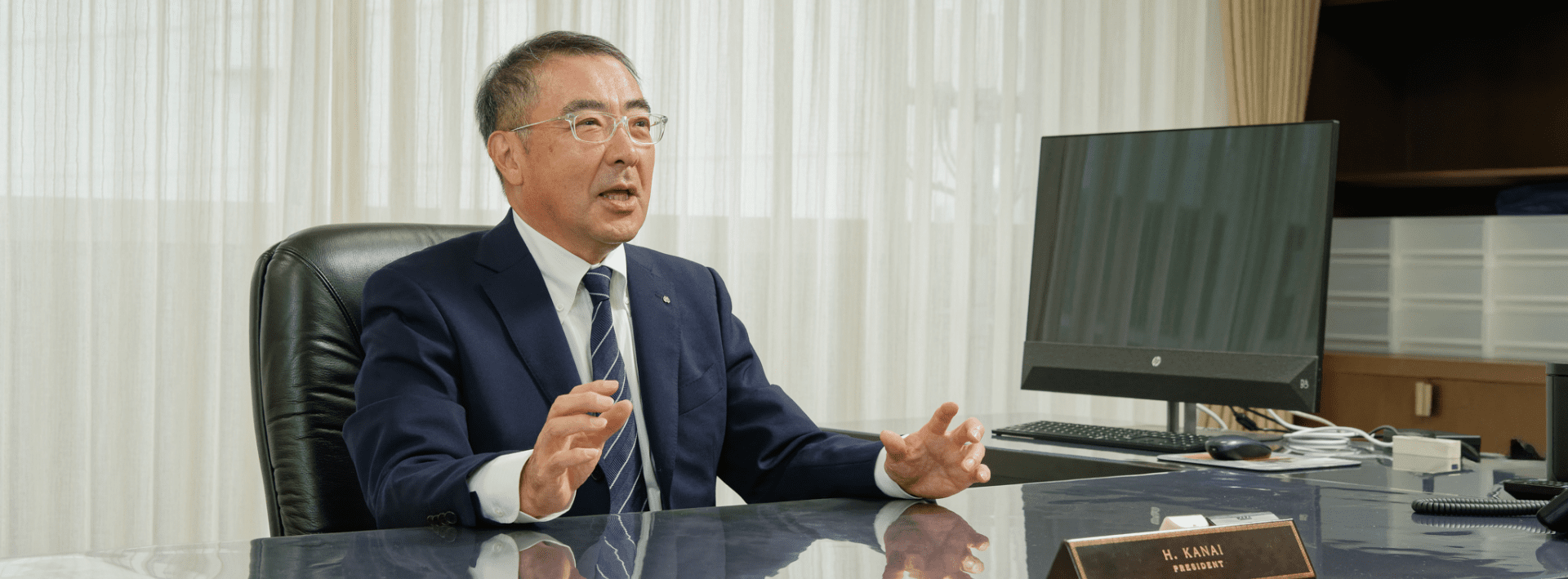
Interview with President Hiroaki Kanai
about the past, present and future of Kanai Juyo Kogyo
Interview with President Hiroaki Kanai
about the past, present and future
of Kanai Juyo Kogyo
Hiroaki Kanai, President of Kanai Juyo Kogyo Co., Ltd.
Chapters
■ 130th Anniversary of Our Foundation
―The company celebrates its 130th anniversary in 2024.
President Hiroaki: I feel the importance of our history. The previous president was my elder brother Hiromi (current Chairman), and I regard brothers as one generation, so we are the fourth generation. Our company was founded as a manufacturer of spinning machine parts, then has built up our strength as a manufacturer of materials such as non-woven fabrics, and has been expanded into various fields, leveraging the technical capabilities cultivated by our predecessors. On the other hand, we have also experienced many failures, including the total burning of the new factory in our headquarters, the withdrawal of our group companies from the business, and the acquisition and closure of a company in the UK, the home of the spinning industry, including events that occurred before I was born.
We believe that the reason we have overcome these setbacks and made us what we are today is because our essence and core as a company, "Contribute to society and stakeholders," has remained unchanged for the past 130 years. Our corporate philosophy, that has been upheld since the company's establishment, expresses the altruistic spirit that everything will go well if you act with the belief that "the other person" is the leading role.
Our keywords are niche, one of a kind, and additional value. We hope to be “a small but shining company" continually by carefully determining what should and should not be changed.
■ History of Kanai Juyo Kogyo
―The company was founded in 1894, just before the Japanese-Sino War.
President Hiroaki: At the time, the spinning industry was important as it contributed to the country's growth, but key parts that affect the quality of textile products, such as Traveller, were imported from the UK. This was noticed by our founder, Kumakichi Kanai, who worked for the installation of machinery and equipment. He started producing Traveller in Japan by imitating others, which was the beginning of our company. Traveller are consumable parts that need to be replaced, so I think the fact that there was a long-term demand for them was an advantage. Since then, we have produced a variety of parts domestically, and currently our products account for about 60% of the maintenance costs for textile equipment.
Traveller is more than just our main product; it is also a symbol of our company. When I was a child, I ate rice at the dinner table in my family’s home, which was the company founding family's home, using a bowl of rice decorated with the traveller mark (laughs). I was raised being told, "Thanks to it (Traveller), we can eat this rice," and even my ancestors' gravestones are shaped like Traveller. We have a strong feeling about traveller.
―In 1943, during World War II, the company name was changed to the current one.
President Hiroaki:As imports stopped during the war, it became difficult to make yarns or clothes without our products, so the government designated us as “a manufacturer of important parts,” and we were given the name "Kanai Juyo Kogyo." It seems that we were asked to do so by the government, rather than naming it on our own.
Going back a little, about 30 years ago, when CI (corporate identity) started to be talked about, the number of foreign-language corporate names increased, and our company considered changing its name. However, many of our employees were opposed to the idea, saying "When we go to new clients, our company name will help us get the conversation going" and "It sounds retro and good!" It's nice to know that our employees are attached to the name.
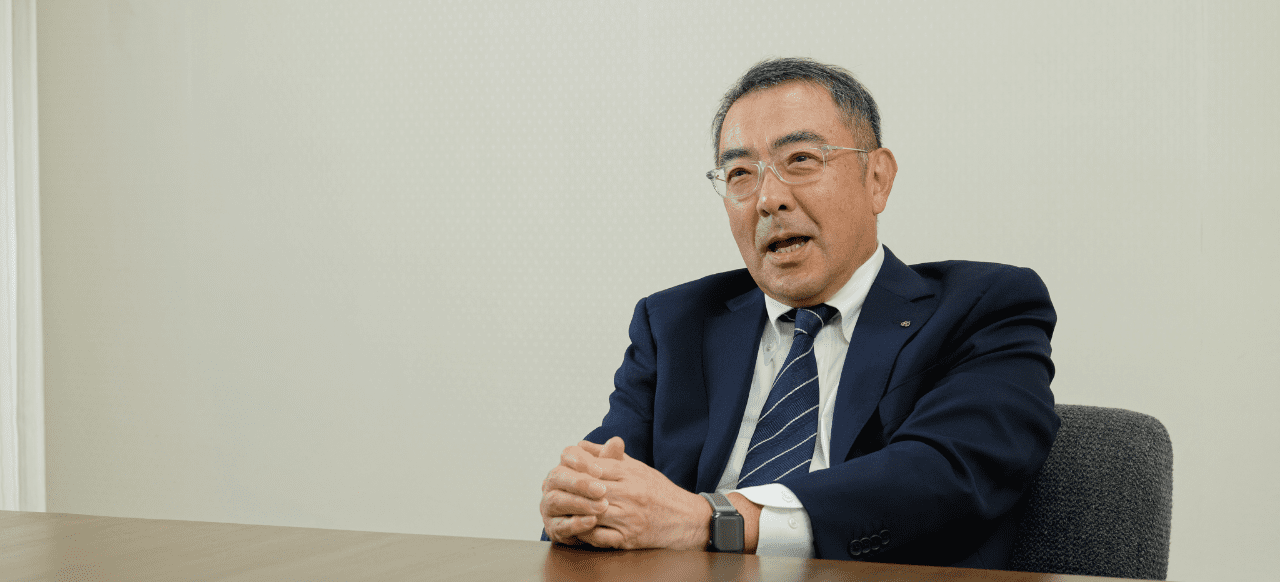
■ Present of Kanai Juyo Kogyo
―In 1958, the company started manufacturing non-woven fabrics, which would later become a core pillar of its business alongside Traveller.
President Hiroaki: My father, the third-generation president (Hiroyuki), was shocked when he saw clothes made from non-woven fabrics when he went to an exhibition in the US. To be honest, there are not many clothes made from non-woven fabrics even now, but I think there was a sense of crisis at the time that the spinning industry was about to undergo major changes.
We introduced equipment and initially started making interlinings for women's obi belts. We started early enough to be counted among the "first four" companies in Japan dealing with non-woven fabrics. Although we ended up withdrawing from the interlining material business, we have become a manufacturer of materials such as non-woven fabric and it is now one of our strengths.
―What are the strengths of a materials manufacturer?
President Hiroaki: If you only make the product itself, there is a possibility that you will not be able to switch over when that product is no longer needed. For example, cassette tapes and CDs were popularly used as the music playback media. But, nowadays, these “things” themselves are disappearing, and downloads have become the mainstream. However, materials can be updated to the products of the times and can be used.
In fact, our products are deployed in the fields of automobiles, home appliances, and semiconductors, and are currently expanding into the medical field. Instead of outsourcing, we have cultivated our own technology and stuck to a "self-reliance" approach that covers everything, which is what has allowed us to be flexible and come to this position so far. On the other hand, in recent years, in order to utilize our technical capabilities, we have begun to collaborate with people in other fields, such as universities, and to explore the ways to create "new things."
■ Future of Kanai Juyo Kogyo
―In terms of "something new," you established a "Technology Innovation Division" in 2014 and started working to create a new pillar of business following Traveller and non-woven fabrics.
President Hiroaki: Broadly speaking, we are expanding our business into the medical field and carbon fiber research. Medical applications in particular have been introduced to the market and sales are growing steadily. A typical example is the medical non-woven spacer, which took 10 years of hard work to develop. It is a device used in radiation therapy, but because it uses a material that is absorbed inside the body, it does not need to be removed in a second operation and has attracted attention as a minimally invasive device for patients.
Our company also puts effort into obtaining "patents," and we have not only knowledge of materials but also metal processing technology, so rather than starting a new business from scratch, we hope to use these existing technologies in a variety of fields by redirecting them for different uses and developing them.
―The average age of employees is 45 and is becoming relatively old. The company's recruitment website, which promotes "recruitment without any recruitment activities," is also impressive.
President Hiroaki: I think that many of the employees who have supported our company so far have been very "serious and sincere." Without changing that direction, the vice president (Kosuke) and others are trying various ways to recruit "outstanding talent" who can bring about innovation. The number of mid-career hires who agree with the company culture is increasing. In terms of transferring skills, we would also like to focus on digitalization, such as using video manuals and VR goggles, and sharing information on engagement tools.
■ Strategy of Kanai Juyo Kogyo
―I hear you have maintained a "balanced management" approach that combines offense and defense. Please tell us what you value as part of your management strategy.
President Hiroaki:
President Hiroaki: We have no intention to become a so-called large company. To put it bluntly, there are methodologies for making a company big as long as there is an appropriate market size, but that is not what we are aiming for. It is more difficult and valuable to have many unique products than to become number one. That is what we are aiming for.
We have followed the trend of globalization and expanded our overseas business, but what we have learned is that if the market size becomes too large, excessive price competition will occur and it will become a battle in the world that is not "manufacturing". That is against our philosophy. Even if it is a niche, we would like to continue making products which are interesting and have high-added values.
―You also advocate "immutable trends" and preach the need for innovation while respecting tradition.
President Hiroaki: I tell my employees, "Get on the trends, but don't chase the trends". We should not be left behind by the changes of the times, but we need to determine whether the direction is correct or not.
This may be an extreme example, but we are not engaged in corporate activities to make profits. If the order is reversed and we are able to contribute to society, profits should come naturally. If we only think about our own profits, fraud and scandals will occur. That should not happen.
Of course, we have to make a profit so that our approximately 1,600 employees, including those of affiliated companies, and their families don't become unhappy, and our management team also need to discipline ourselves. Our company is what is often referred to as a "family business," but it's not just in that sense; we also treat our employees as part of our family. There's an organizational chart on the wall of the president's office, and photos of the employees are attached to their names on it, which also comes from such a way of thinking.
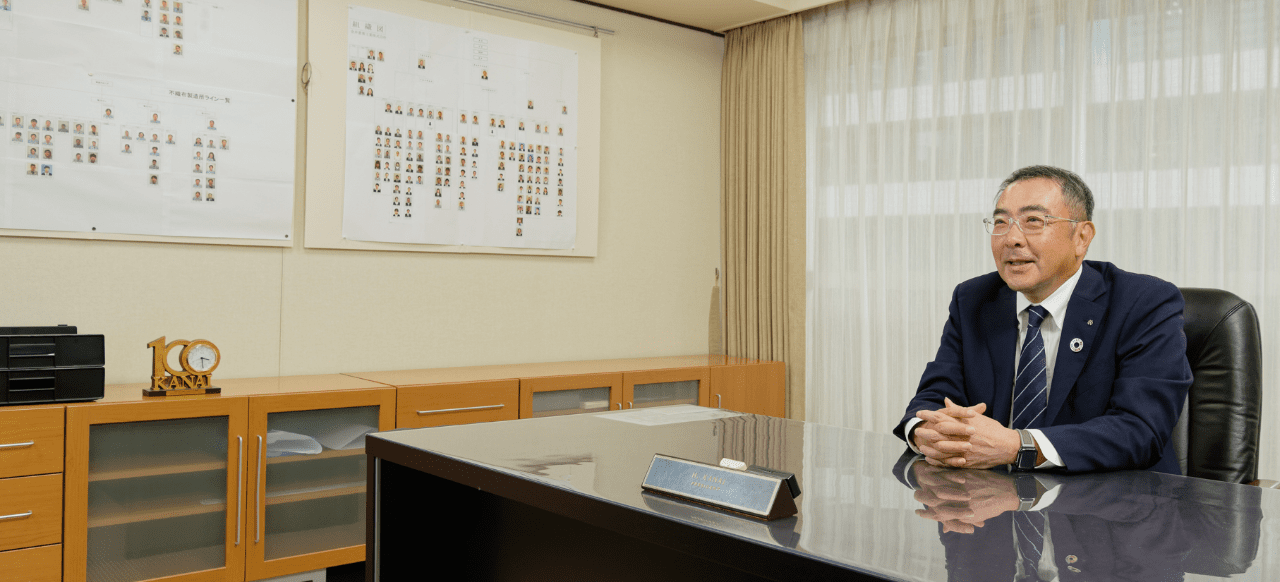
―President Hiroaki (Kanai), you are also a Doctor of Engineering and come from a "technical background," so you are highly trusted by employees of the site, aren’t you?
President Hiroaki: As the request of my grandfather (Keiji, the second president), who was an engineer, my elder brother worked in the administrative department, while I, the younger brother, studied in the technical field. That's why I went on to study at the Faculty of Textiles at Shinshu University. I didn't ask the employees directly because it was embarrassing, but it seems that having me on the management team gave the employees a sense of security that "technical matters would be understood." Well, maybe there were some situations where they ran into trouble because I precisely understand technical things. (laughs)
■ Our Vision for Kanai Juyo Kogyo
―Please tell your vision for the future to continue with the company for over 130 years and for 150 or 200 years.
President Hiroaki: There is a view in the world that "Purchase time to create new things with money by acquiring companies through M&A," but I think it is dangerous to just expand the size of our company.
The other company also has its own climate and culture. There are some aspects where we do not know whether it will match ours or not. We have acquired some companies before, but we did not determine them in order to expand our company size. I think it is possible that we will acquire startup companies in the future, but we would like to join hands with the companies that can combine our technology and create something that is truly needed in the world.
We create value by purchasing (a material) by ton and reducing its unit to grams and microns (commercializing). As we are the company that has been committed to “Business-to-Business (BtoB)” in this way, there may be some aspects that are not known to the general consumer, such as "What does that company make?" Even so, we firmly share our philosophy and values within the company and respect and care for our stakeholders. Of course, our first priority is to create an environment where employees can work happily and comfortably. With this corporate attitude, we hope to continue to be an indispensable presence that is respected by society and the local community.
List of Engagement
CONTACT
If you have any inquiries, please feel free to contact us by telephone or email.


